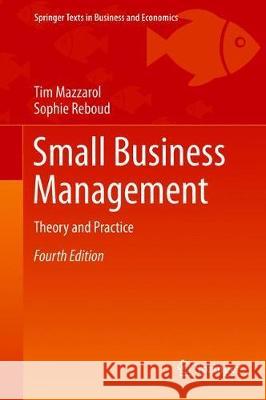Small Business Management: Theory and Practice » książka
topmenu
Small Business Management: Theory and Practice
ISBN-13: 9789811395086 / Angielski / Twarda / 2019 / 579 str.
Small Business Management: Theory and Practice
ISBN-13: 9789811395086 / Angielski / Twarda / 2019 / 579 str.
cena 402,53
(netto: 383,36 VAT: 5%)
Najniższa cena z 30 dni: 385,52
(netto: 383,36 VAT: 5%)
Najniższa cena z 30 dni: 385,52
Termin realizacji zamówienia:
ok. 16-18 dni roboczych.
ok. 16-18 dni roboczych.
Darmowa dostawa!
Kategorie:
Kategorie BISAC:
Wydawca:
Springer
Seria wydawnicza:
Język:
Angielski
ISBN-13:
9789811395086
Rok wydania:
2019
Wydanie:
2020
Numer serii:
000424303
Ilość stron:
579
Waga:
1.01 kg
Wymiary:
23.39 x 15.6 x 3.33
Oprawa:
Twarda
Wolumenów:
01
Dodatkowe informacje:
Wydanie ilustrowane











